|
Brought to you by Dairy's Professional Development Organization®
|
|
|
"Character cannot be developed in ease and quiet. Only through experience of trial and suffering can the soul be strengthened, ambition inspired, and success achieved."
--- Helen Keller
|
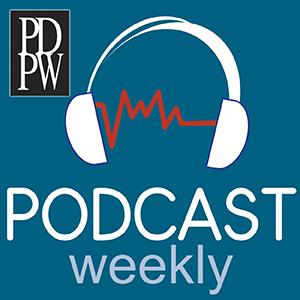
PDPW Podcast Weekly...
PDPW Podcast Weekly is making waves!
This Monday morning podcast has been a smash hit since its debut a couple months ago. Each edition features a 10 to 20 minute message designed to recharge your purpose and passion for dairy and enhance your life and business. To ensure the free podcasts are emailed to you, click
here
to subscribe. Start looking forward to Mondays!
To listen to archived podcasts click
here
.
|
Opportunities to learn...
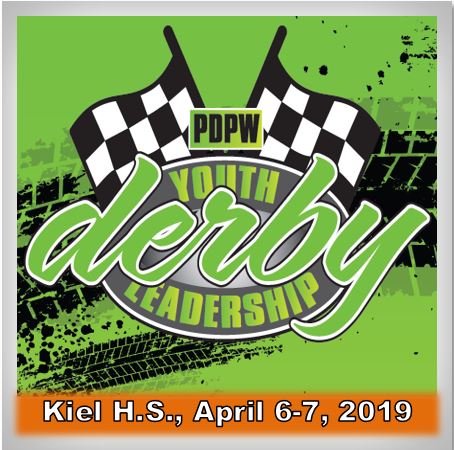 DON'T MISS 2019
YOUTH LEADERSHIP DERBY! For students ages 15-18, this is a can't-miss event. Whether or not your teen knows if they're interested in a dairy industry career, be sure they register for this two-day overnight program. In addition to participating in leadership, science and communication activities, they'll also learn from industry professionals, tours, and hands-on breakout sessions. Positioning young adults for future success is what this program is all about. Learn more and register here or call 800-947-7379. DON'T MISS 2019
YOUTH LEADERSHIP DERBY! For students ages 15-18, this is a can't-miss event. Whether or not your teen knows if they're interested in a dairy industry career, be sure they register for this two-day overnight program. In addition to participating in leadership, science and communication activities, they'll also learn from industry professionals, tours, and hands-on breakout sessions. Positioning young adults for future success is what this program is all about. Learn more and register here or call 800-947-7379.
 WE WANT YOUR INPUT - JOIN US AT A BARNSTORMING SESSION. As a grass-roots, producer-led organization, we rely on active dairy farmers to share their educational wants, needs, and visions with us so we can develop meaningful educational programs for you. During Barnstorming Sessions we'll gather ideas and insights from you and treat you to lunch and a farm tour. Upcoming sessions will be held April 8-11 in Cleveland, Lancaster, Colby, and Elk Mound, Wis. Click here to learn more and to register. WE WANT YOUR INPUT - JOIN US AT A BARNSTORMING SESSION. As a grass-roots, producer-led organization, we rely on active dairy farmers to share their educational wants, needs, and visions with us so we can develop meaningful educational programs for you. During Barnstorming Sessions we'll gather ideas and insights from you and treat you to lunch and a farm tour. Upcoming sessions will be held April 8-11 in Cleveland, Lancaster, Colby, and Elk Mound, Wis. Click here to learn more and to register.
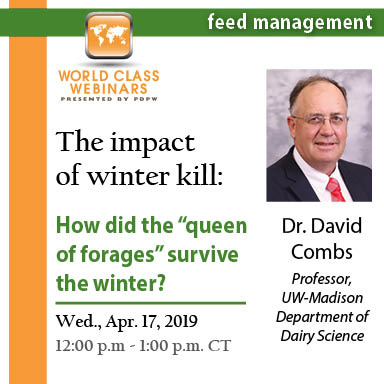 WEBINAR: SPRING IS HERE - WHAT ABOUT WINTER KILL? After a tough winter of flooding and a polar vortex, many wonder how alfalfa has fared. In a PDPW World Class Webinar on April 17, UW-Madison Dairy Science professor Dr. Dave Combs will discuss how to assess winter damage to alfalfa, options for damaged stands and how to adjust rations for dairy cattle when alternative forages are needed to replace alfalfa. To register for the webinar, held from 12:00 to 1:00 p.m. CT, click here or call 800-947-7379. If you're unable to listen at the scheduled time, you'll have access to the recorded version via a link emailed to you after the webinar. WEBINAR: SPRING IS HERE - WHAT ABOUT WINTER KILL? After a tough winter of flooding and a polar vortex, many wonder how alfalfa has fared. In a PDPW World Class Webinar on April 17, UW-Madison Dairy Science professor Dr. Dave Combs will discuss how to assess winter damage to alfalfa, options for damaged stands and how to adjust rations for dairy cattle when alternative forages are needed to replace alfalfa. To register for the webinar, held from 12:00 to 1:00 p.m. CT, click here or call 800-947-7379. If you're unable to listen at the scheduled time, you'll have access to the recorded version via a link emailed to you after the webinar.
TAKE CREDIT FOR THE PROGRAMS YOU'VE ATTENDED.
Find, track and report your Continuing Education (CEs). Get more details at
DairyAdvance.org
.
|
For your dairy...
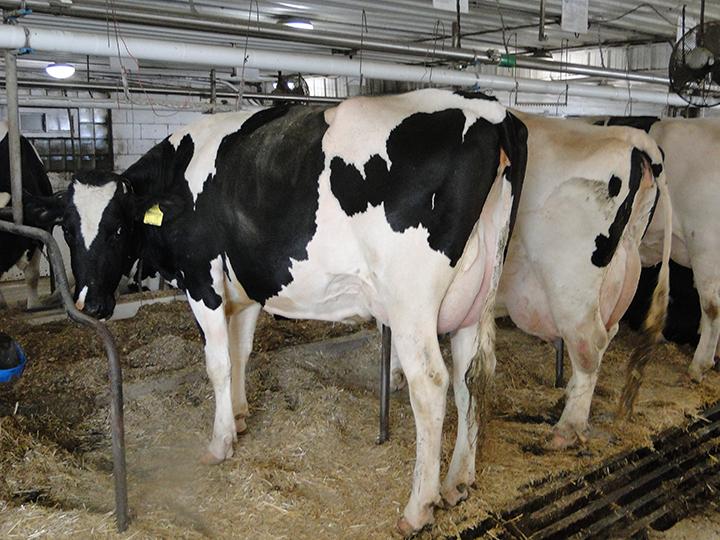 LEVERAGE THE LIVER FOR BETTER COW HEALTH AND PERFORMANCE
Dr. Heather White, associate professor of Nutritional Physiology in Department of Dairy Sciences at UW-Madison, and graduate students Henry Holdorf, Ryan Pralle and Kristina Weld shared information about their ongoing research on the Preview Stage at the recent 2019 PDPW Business Conference. Their research is focused on improving liver function to help cows meet metabolic needs through the transition period. Research in the lab focuses on how cows utilize starches, enzymes, amino acids and nutrients from their ration; how fatty acids and nutrients are stored in the body and later used by the mammary gland; and how to best predict and diagnose ketosis and other liver-related conditions. LEVERAGE THE LIVER FOR BETTER COW HEALTH AND PERFORMANCE
Dr. Heather White, associate professor of Nutritional Physiology in Department of Dairy Sciences at UW-Madison, and graduate students Henry Holdorf, Ryan Pralle and Kristina Weld shared information about their ongoing research on the Preview Stage at the recent 2019 PDPW Business Conference. Their research is focused on improving liver function to help cows meet metabolic needs through the transition period. Research in the lab focuses on how cows utilize starches, enzymes, amino acids and nutrients from their ration; how fatty acids and nutrients are stored in the body and later used by the mammary gland; and how to best predict and diagnose ketosis and other liver-related conditions.
Holdorf has analyzed data from the KetoMonitor™ system available through AgSource to determine seasonal trends. While no connection was found between heat stress and increased subclinical ketosis occurrences, a possible link between sub-clinical ketosis and starch fermentability has been identified.
Pralle reviewed additional tools currently available to diagnose ketosis, including cow-side blood tests, urine tests, and milk sampling. A model developed by "machine learning" diagnosed subclinical ketosis with an accuracy of about 80 percent when given data from 1,000 cows and 3,000 milk samples from dairy producer records, DHIA testing and milk component testing. While blood testing is standard, Pralle explained their research continues to seek diagnostic methods that better align with milk testing and offer more accurate data. An additional goal is to create diagnostic tests for use in the fresh pen to identify subclinical ketosis cases.
Weld presented an overview of transition-cow oxidative capacity and the pathways by which fatty acids can be metabolized in the liver during the transition period. Work is underway using cell culture models to see whether changes in the fatty acids can influence oxidative capacity, and what might cause those changes.
ADDING SUGAR SOURCES TO DAIRY RATIONS
may be a good option for some dairy farms, especially if forage and grain quality from last season is poor. An article from Penn State University shares considerations for farms with sugar sources that could potentially complement the ration and take the pressure off starch as the only energy source. Using a testing lab to determine sugar levels will help formulate the appropriate ration, and
monitoring income over feed cost per cow is the best approach to evaluate if a ration change is working. Learn more in the full article here.

REDUCING NITROGEN LOSSES FROM DAIRY FARMS is the goal of a nutrition model developed by Cornell University. In a study of eight New York dairy farms utilizing the Cornell Net Carbohydrate & Protein System to help determine dairy cow rations, participating farms averaged about 14 percent less nitrogen in their manure. The research found that farmers can feed cows less protein, maintain a cow's milk production output and reduce nitrogen in the manure so the nutrient doesn't run off into waterways and lakes. Read more in the Feedstuffs article here.
|
 MORE THAN 25% OF AMERICAN JOBS are connected either directly or indirectly to the food and agriculture sector, according to a new study released by a group of 23 food and agriculture organizations. The "Feeding the Economy" report found that food and agriculture contribute $7 trillion to the U.S. economy, representing more than one-fifth of the nation's economy. Click here to read a summary article. MORE THAN 25% OF AMERICAN JOBS are connected either directly or indirectly to the food and agriculture sector, according to a new study released by a group of 23 food and agriculture organizations. The "Feeding the Economy" report found that food and agriculture contribute $7 trillion to the U.S. economy, representing more than one-fifth of the nation's economy. Click here to read a summary article.
NEW OPPORTUNITY TO SUPPORT FARM TECHNOLOGY DAYS is available through Equity and Milwaukee Stockyards. FTD has partnered with Equity in Johnson Creek and Milwaukee Stockyards in Reeseville so that farmers selling a cull cow, steer, sheep or pig can donate proceeds from the animal to the show. Click here to learn more.
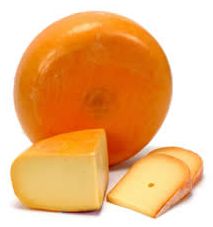 DOES MOZART DELIVER A MILDER CHEESE?
It is no secret that the flavor of cheese is influenced by many factors. A Swiss cheesemaker and research team tested the effects of music by exposing wheels of Emmental cheese to hip-hop, classical and rock music for six months. Food technologists from the ZHAW Food Perception Research Group concluded that cheese exposed to music had a milder flavor compared to cheese not exposed to music. Researchers also found the "hip-hop cheese" had a stronger aroma and flavor than other samples. The cheese will now be subjected to biomedical surveys to see if any differences can be found. Read more in this article from Smithsonian.com. DOES MOZART DELIVER A MILDER CHEESE?
It is no secret that the flavor of cheese is influenced by many factors. A Swiss cheesemaker and research team tested the effects of music by exposing wheels of Emmental cheese to hip-hop, classical and rock music for six months. Food technologists from the ZHAW Food Perception Research Group concluded that cheese exposed to music had a milder flavor compared to cheese not exposed to music. Researchers also found the "hip-hop cheese" had a stronger aroma and flavor than other samples. The cheese will now be subjected to biomedical surveys to see if any differences can be found. Read more in this article from Smithsonian.com.
|
For your business mind...
 INCENTIVES OFFER HELP AFTER BARN-ROOF COLLAPSES
through the Focus on Energy Program.
FOCUS ON ENERGY® is offering a 25-percent bonus on top of its regular financial incentives to Wisconsin farmers whose barn roofs collapsed due to heavy snowfall. The money can help farmers replace some equipment damaged in roof collapses, including lights, waterers and circulation fans with energy-efficient options that will save them money on their energy bills for many years. The special offering was launched March 20. To be eligible, farmers must: INCENTIVES OFFER HELP AFTER BARN-ROOF COLLAPSES
through the Focus on Energy Program.
FOCUS ON ENERGY® is offering a 25-percent bonus on top of its regular financial incentives to Wisconsin farmers whose barn roofs collapsed due to heavy snowfall. The money can help farmers replace some equipment damaged in roof collapses, including lights, waterers and circulation fans with energy-efficient options that will save them money on their energy bills for many years. The special offering was launched March 20. To be eligible, farmers must:
- Qualify for reconstruction due to a natural disaster in 2019
- Be a customer of one of the 107 Wisconsin utilities that partner with Focus on Energy
- Apply for a bonus request by June 1, 2019
- Complete any projects and submit incentive paperwork by November 30, 2019
Click
here
for more details and application instructions.
RESOURCES FOR FLOOD CLEANUP AND SAFETY are available on the
AgriSafe Network web site, including special precautions to take when dealing with flood recovery on farms due to livestock manure, chemicals, fertilizers, equipment or other hazards. In addition, resources are available at this website for responses during cold weather and other health concerns after farm flooding.

THE SECRET TO BEING A HIGH-PERFORMING LEADER
is keeping it simple, according to Albert Einstein. His advice: "if you can't explain it simply, you don't understand it well enough." For today's dairy farm and industry managers, that means explaining things without fancy jargon, big words or complex terms. An Inc. magazine article recommends two steps to simplifying your explanations:
- See the world through the eyes of your target audience
- Consider if your parents or a fifth-grader understand your message.
Read the full article
here
.
SIMPLE AMENITIES CAN MAKE A BIG DIFFERENCE
in a dairy's work environment. Tight margins and limited ag workforce make it seem difficult to add perks for workers, but employing a few simple steps can make the workplace safer and more comfortable while boosting morale. Tips from SDSU extension include:

- Make sure employee restrooms are clean and well-stocked
- Have separate refrigerators for storage of food from medicines.
- Make sure hand-washing stations near eating and break areas are stocked with soap, water and paper towels
- Communication board or wall for posting recognition, reminders and important notices
- Boot-wash areas that are available outside of offices, break-rooms or locker room areas
More ideas and details are available in the full article
here
.
|
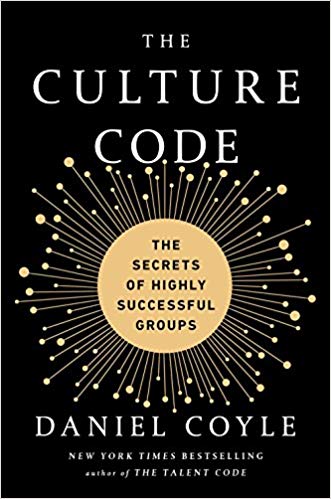
Book Review
THE CULTURE CODE: THE SECRETS OF HIGHLY SUCCESSFUL GROUPS
Author Daniel Coyle examines some of the world's most successful organizations, from the U.S. Navy SEAL Team Six to the San Antonio Spurs, to identify skills and strategies for cohesion and cooperation. The book combines leading-edge science, on-the-ground insights from world-class leaders, and practical ideas for action. Click
here
to learn more.
|
|
A BIG Thank You...
TO THE PDPW SPONSORS who are supporting your professional development organization! As a producer-led group, we extend a heart-felt "Thank You!" to those that stand alongside our nation's dairy farmers.
Their support allows PDPW to execute best-in-class producer training and has enabled us to become the go-to resource for unified outreach initiatives. If you or a company you know is interested in participating as a sponsor, please contact us at abonomie@pdpw.org or call 800-947-7379.
See the full list of generous sponsors
here.

|
|
PDPW Education Calendar
| April 6-7 |
Youth Leadership Derrby: Kiel, Wis. |
| April 8, 9, 10 & 11 |
PDPW Barnstorming Listening Sessions: Cleveland, Lancaster, Colby and Elk Mound, Wis. |
| April 17 |
World Class Webinar - What's The Impact of Winter Kill: On Your Computer |
| April 23, 25 |
Herdsperson Workshop - Taught Exclusively in Spanish: Eau Claire, Chilton, Wis. |
| May 21-23 |
Agricultural Professional Partnerships® (APPs) Training: Madison, Wis.
|
| September 14-27 |
PDPW International Dairy Tour: Germany & Holland
|
STAY CONNECTED
800-947-7379
|
|
|
|
|